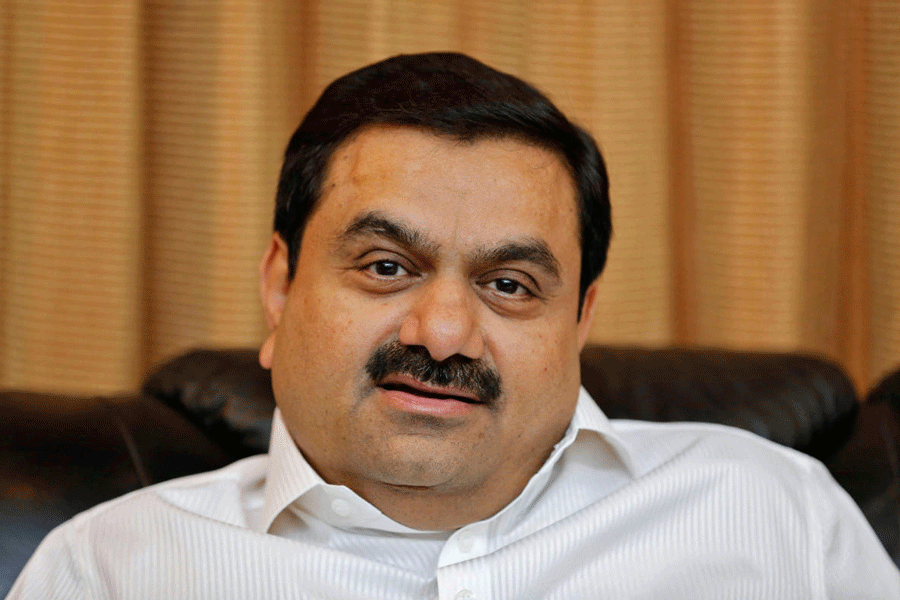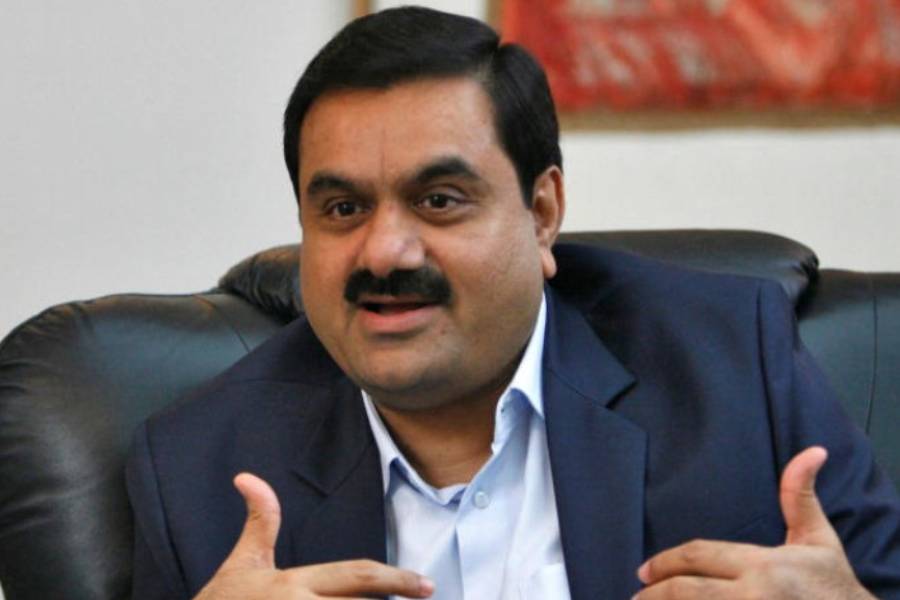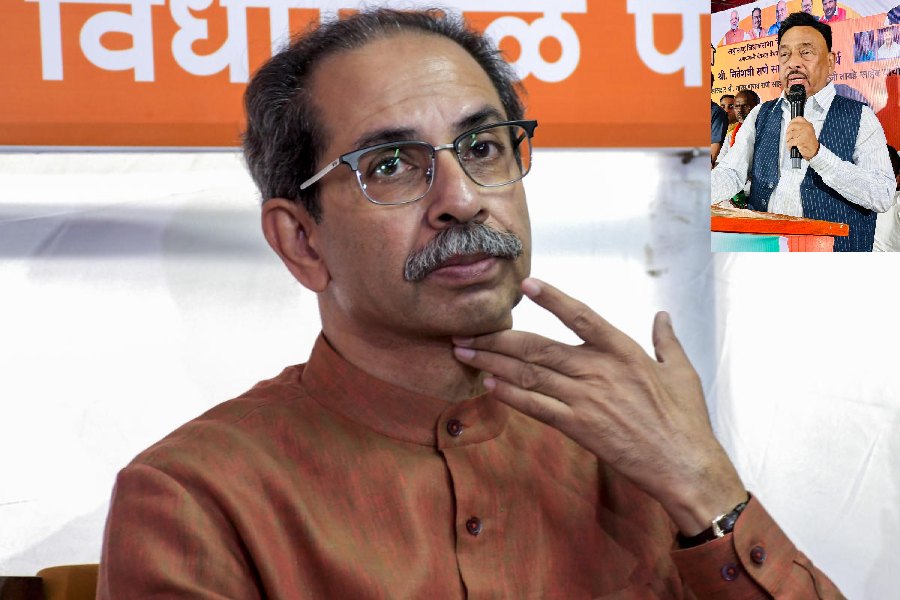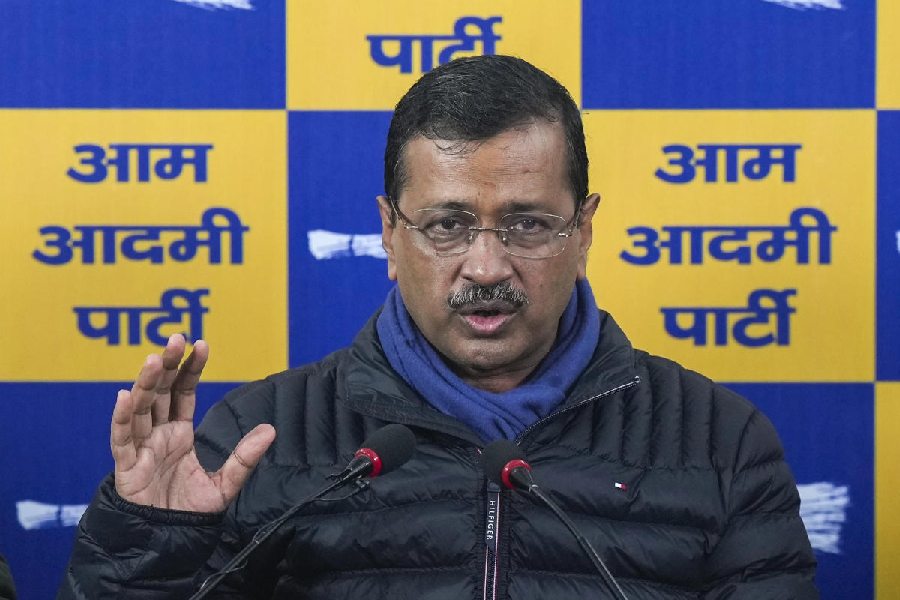The Supreme Court has refused to use its special powers to transfer the investigation into accusations of financial and accounting shenanigans against the Adani group from Sebi to an independent special investigation team (SIT), rejecting claims by a bunch of public interest litigants that the market regulator had been wilfully delaying the probe.
A bench headed by Chief Justice of India D.Y. Chandrachud said the material produced in court by the litigants did not establish regulatory failure on the part of Sebi and, therefore, there was no evidence of deliberate inaction or inadequacy in Sebi’s investigation.
Instead, the court directed the Centre and Sebi to probe the role of US short seller Hindenburg Research which had triggered an avalanche of selling in Adani group stocks early last year that at one stage wrung close to $150 billion from the group’s market valuation.
The US short seller had built up a short position in the Adani group through “US-traded bonds and non-Indian traded derivative investments”, the court said.
The bench, which included Justice J.B. Pardiwala and Justice Manoj Misra, said Sebi and the investigative agencies of the Union government shall determine “whether there was any infraction of law by the entities, which engaged in short-selling”.
“The loss, which has been sustained by Indian investors as a result of the volatility caused by the short positions taken by Hindenburg Research and any other entities acting in concert with Hindenburg Research, should be probed,” the bench said.
The move will now turn the regulatory heat on a cabal of US-based short sellers.
Short selling occurs when an investor borrows a security and sells it on the open market, planning to buy it back later for less money. Short sellers bet on, and profit from, a drop in a security’s price.
Short selling is a legitimate trading strategy in the stock market. In fact, the court said that Sebi had itself submitted that short selling was “a desirable and essential feature to provide liquidity and to help price correction in over-valued stocks”.
In fact, Sebi had submitted that any restriction on short selling may “distort efficient price discovery, (and) provide promoters unfettered freedom to manipulate prices”, the court added.
Despite this, the court said it had taken on “record the statement made by the Solicitor General (Tushar Mehta) before this Court that measures to regulate short selling will be considered by the Government of India and Sebi”.
The court said it had the power under Article 32 and Article 142 of the Constitution to transfer an investigation from the authorised agency to the CBI or constitute an SIT. “However, such powers must be exercised sparingly and in extraordinary circumstances,” the judgment said.
“Unless the authority statutorily entrusted with the power to investigate portrays a glaring, wilful and deliberate inaction in carrying out the investigation the court will ordinarily not supplant the authority which has been vested with the power to investigate,” the court added.
“Such powers must not be exercised by the court in the absence of cogent justification indicative of a likely failure of justice in the absence of the exercise of the power to transfer. The petitioner must place on record strong evidence indicating that the investigating agency has portrayed inadequacy in the investigation or prima facie appears to be biased,” the bench said.
The bench passed the judgment while disposing of four separate petitions which had sought a probe by an independent SIT into the Hindenburg report that carried a sensation title: “Adani Group: How the World’s 3rd Richest Man is Pulling the Largest Con In Corporate History.”
Several petitioners had tried to undermine the Sebi’s probe by choosing to rely on revelations from the Organised Crime and Corruption Reporting Project (OCCRP) — a network of investigative journalists that collaborated with the Financial Times and The Guardian to publish a series of damning reports.
The court said the OCCRP report and the newspaper articles could not be produced as evidence to cast doubt on the Sebi probe. Such reports, the court added, “may (only) act as inputs”.
“They cannot be relied on as conclusive proof of the inadequacy of the investigation by Sebi,” the court added. The court directed Sebi to wrap up its investigation “preferably within three months”.
In a status report filed last August, Sebi had said it had completed its investigations into 22 of the 24 specific charges levelled against the Adani group. It had claimed that it was still waiting for information from regulators in some global tax havens.
The bench asked Sebi and the Centre to examine the various suggestions made by the court-appointed expert committee headed by retired Supreme Court Justice A.M. Sapre which had submitted its report in May last year. It also rejected allegations of conflict of interest of three of its members.












